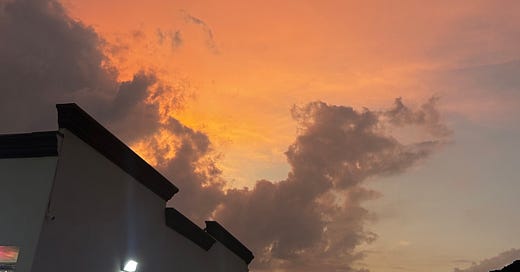The Wild Web of Social Media and Some Self-Reflection
This reflection sparked by some of my parodies: What I’ve learned about social media, performative behaviour, and the messy art of satire. It’s deep - so strap yourself in.
The Social Media Trap
Social media thrives on reactions. Every like, comment, or share delivers a dopamine hit that keeps us hooked. It’s why setting boundaries—like limiting screen time, ignoring comments, or pausing before emotionally reacting—is so crucial yet so hard. The instant gratification of validation is addictive, and the platform’s design ensures we keep chasing it.
It’s easier than ever to post something for the world to see. A fleeting thought can live online forever, sparking reactions that pile on—comments on comments, outrage on outrage. But those reactions often fade very fast. Given a moment’s pause, we might regret that fiery post or comment. Social media, though, amplifies and immortalises them, feeding a cycle of validation or vilification.
The Performance of It All
As a creator, I am always reflecting on why I do it all.
Self-expression is at the heart of it, but once shared, or thought to be shared, an audience enters the equation. Questions creep in: Will they love it? Hate it? Get it? And essentially, will this be positive and provide something for society? And it is important to question how an audience would perceive something, but in a healthy expression, it wouldn’t be the driving force.
And yet, for some creators, the pursuit of getting reactions—whether joy, anger, or offence—becomes the driving force. They learn which topics, tones, or tactics get the most clicks and lean into them hard.
Why? Because it often ties back to needs—love, approval, attention, security. Maybe as kids, we learned that certain behaviours gave us these aspects from parents or peers. We may have witnessed it in others, too, and learned through watching. Maybe it’s promoted through society (which a lot of it is at the moment). And then this pattern carries into every relationship we have, including with social media, where reactions translate to likes, followers, or even income (security/safety). Imagine building a life—your home, lifestyle, community—around those reactions. Dropping that performative behaviour and pattern then becomes terrifying when it feels like your identity or livelihood depends on it.
Feedback
And now, although trying to get or provoke reactions sounds pretty “unhealthy”, feedback in any form is a natural part of life. Whether you try to get it or not, it will show up. A plant wilts if you don’t water it; an audience stays silent if your joke bombs. In art, feedback shapes the work. A comedian tweaks their set if the laughs don’t come. The Bible puts it well: “Give, and it will be given to you… For with the measure you use, it will be measured to you” (Luke 6:38). Or in Buddhism, it is referred to as “Karma”. The energy we put out comes back, whether we like it or not.
I think we have a responsibility to reflect on that feedback. Criticism, while uncomfortable and might sometimes feel like an attack, can be a gift—a chance to grow, refine, and align our work with our values. But I think the worst thing that someone can do is to then blame the feedback. The best thing someone can do is take responsibility: own it or change it.
My Satire & Parodies
Creating these parodies and satirical videos has been a wild ride—equal parts fun, challenging, and, frankly, a bit of a mind-bender. I love satire, which for me means using it in a way to poke fun at contradictions and hypocrisies I see in people and society. It’s funny for me and I enjoy being a commentator on life in this way - and that’s truly what I see this as. And as much as I receive a lot of support and positive feedback for this, I do sometimes receive some feedback calling me out. I point out some things and laugh while I do it, and then one day the finger comes back at me. Makes sense. One recently said something along the lines of: “You’re an artist using your energy to hurt someone. The world’s harsh enough. If Abbie’s not your vibe, focus on yourself.” (Talking about my recent Abbie Chatfield remix I made).
And I heard it, and I’m grateful for the feedback. My intent is never to hurt Abbie nor anyone I make parodies on, but I see how it could. I’m pointing out contradictions and making jokes out of them. And it’s also very easy to justify it too—“she’s hurt others so much worse, so it’s fair!”. It’s probably the same way she justifies her behaviour, too. But it shows me a fair point - pointing out someone’s flaws and contradictions while ignoring my own is hypocrisy. If I’m calling for more responsibility and ownership, I need to hold myself to the same standards.
Reflection
I stand by the jokes I’ve made and the parodies I’ve done. My intention is always in good faith - to reflect and provide commentary on society and characters in society. I also see these characters as more of “puppets” or “players” in the game.
As Oscar Wilde said, “If you want to tell people the truth, make them laugh, otherwise they’ll kill you.” It’s never made more sense to me haha. There is something in me that wants to share what I see in the world- to express myself, but also with the knowing that I will receive feedback to help me refine my work too. I will keep striving to create from a place of authenticity and being true to myself.
Art reflects life, and a crazy world makes for crazy art. Artists and creators are storytellers, provocateurs, and mirrors of the human experience. So whilst it’s easy to point the finger at the player in the game, it might also be an opportunity to see it as a wider reflection of what’s going on in society as a whole. “Don’t hate the player, hate the game”.





